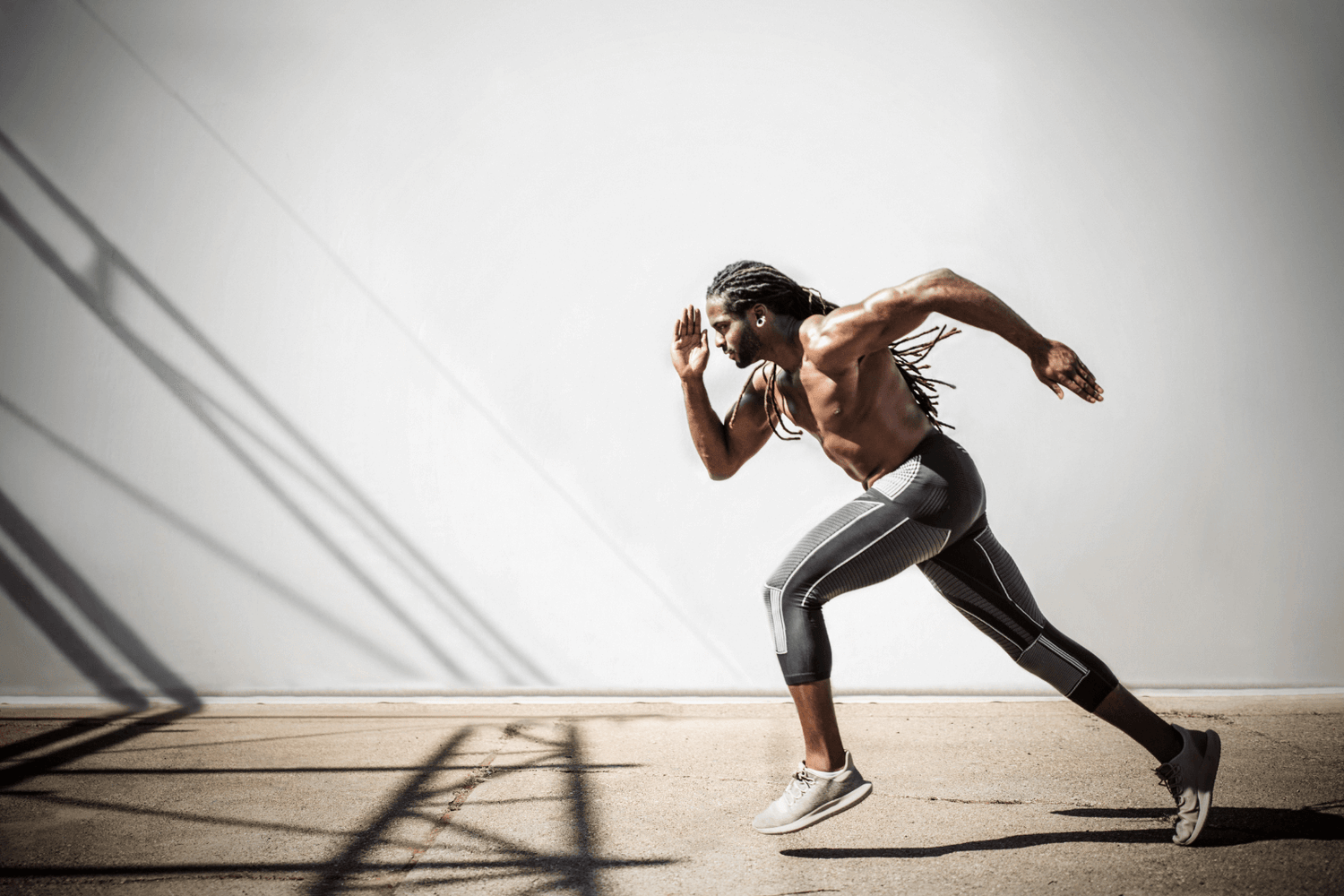Wintertime, cool temperatures - no desire to exercise? If you feel like this, you're not alone. In fact, many of us prefer to stay on the warm couch when the weather is chilly. Especially in winter, with all the holidays and festive meals, too little exercise is problematic. Too little exercise also harms your intestinal flora and therefore your (intestinal) health. But how can you outwit your inner couch and chocolate lover? And how much sport should you do? ? We show you eight simple tricks on how to get more exercise into your everyday life and how much exercise your body really needs!
1. Why sport is good for you
We've all been there: after a day of walking in the fresh air, we're proud of our achievements, feel wonderfully exhausted in the evening and falling asleep has never been so easy. This is because our bodies are built for physical performance, such as running, walking long distances or climbing. But we mainly work sitting down or at a PC. That's why it's particularly important today to give our bodies enough exercise in between. The World Health Organization (WHO) already recognizes lack of exercise as the fourth biggest risk factor for a shortened life - right after smoking, high blood pressure and diabetes! As many as 23% of all bowel cancer cases are caused by too little exercise. These figures are alarming and show how much our health depends on sufficient exercise. (1, 2)
2. How much sport
Now you're probably asking yourself: how much sport is enough to keep me healthy? The World Health Organization has precise ideas on this too. An adult should do 2.5 hours of moderate-intensity ("aerobic") exercise per week - this means that you work up a sweat while running, but you can easily keep up your pace for 30 minutes. However, you can also replace this endurance training with 1 hour 15 minutes of intensive exercise - for example, interval training while running. A combination of the two forms of sport is also permitted. So if you do 1:15 hours of endurance training and 38 minutes of intensive sport per week, you're already ahead of the game! (1)

Sport and exercise are healthy for body and mind!
3. Which kind of sports
Theoretically, we now know what kind of training your body needs: Endurance sports that make you sweat. But which sports are good for the body? Running, walking, cycling and swimming are particularly good for endurance training. (1) So you can choose what you particularly enjoy. Your training could consist of an hour's swim once a week, 30 minutes of intensive running (for you) once a weekend and a brisk bike ride to work once a week. Sport doesn't sound so bad and you've done your body and your health an incredible amount of good!
4. Weight training
But with all this endurance training, what about weight training? Don't we need it? Strength training means that muscle groups are strongly challenged and thus stimulated. The aim of strength training, for example, is to build up the back muscles and thus prevent back pain. Strength training is also essential to prevent diseases such as osteoporosis, where bones become weak and brittle. (3) Popular strength sports include training with weights in the gym, but climbing, cycling and swimming also train muscle strength. There is therefore an overlap between endurance and strength training. The WHO also adds in its recommendations that muscle-strengthening activities should be part of training twice a week.
5. Not a super athlete
To ensure that regular exercise is fun and doesn't feel like an unpleasant compulsion, don't expect too much from your body. On the one hand, your body first has to get used to the sport and build up the necessary muscles - that takes time. On the other hand, you don't want to become a competitive athlete, you just want to work up a sweat and maintain your health. This does not include running a marathon - that remains a task for sports enthusiasts. The important thing is to enjoy the exercise and that your body feels pleasantly exhausted after training.

Swimming is a wonderful form of endurance training.
6. Pick yourself up
For something to become a habit, you have to have done it for an average of 66 days. (4) That's why it's helpful to learn a few tricks to avoid falling into old patterns. Find a friend or sports buddy to train with regularly. This way you keep each other accountable and have an extra motivation to exercise: meeting friends. If you go swimming on Mondays, tell as many colleagues as possible - that way you can't just back out. Or allow yourself a small reward after exercising, for example taking a bath or having a piece of cake the next day (not on the same evening, please).
7. The right diet
Every proper workout also needs a proper diet. But don't worry, we're not talking about a complete change of diet here! Eating a balanced diet with plenty of variety - especially when it comes to fruit and vegetables - is particularly important. You can find out more about healthy nutrition for the intestinal flora here! The intake of protein is particularly important for athletes. Our muscles consist mainly of proteins and as soon as we do sport, our need for protein increases. An adult needs around 0.8 g of protein per kilogram of body weight per day - that's not a small amount at all! So if you are doing more sport again, you should also make sure you eat enough protein! High protein levels can be found in meat, fish, eggs, curd cheese, buttermilk and pulses. (5)
8. Intestinal flora and sport
More exercise also keeps the intestinal flora healthy and diverse.The more different bacteria there are in the gut, the more stable and less susceptible to disease the gut flora becomes.A study has shown that the microbiota of athletes has a higher diversity than their control group and is therefore associated with health.(6) Of course, it could be that athletes eat a healthier diet and therefore have a healthier microbiome.However, it is obvious that exercise still has an influence on the intestinal flora, as this is determined by an incredible number of factors.For example, more frequent bowel movements (triggered by exercise) could perhaps change the intestinal flora.
As you can see, sport is essential for a healthy body, is fun and can provide the necessary balance to hectic everyday life!We hope we have been able to motivate you and take away your fear of over-exertion - because the important thing is not to become world champion, but to find a balance between exercise and well-being!

Cycling is an endurance sport as well as strength training.
References
- Global Recommendations on Physical Activity for Health. Geneva, World Health Organization, 2010.
- Global health risks: mortality and burden of disease attributable to selected major risks. Geneva, World Health Organization, 2009.
- Layne JE, Nelson ME. The effects of progressive resistance training on bone density: a review. Med Sci Sports Exerc. 1999;31(1):25-30.
- Lally, P., van Jaarsveld, C., Potts, H., & Wardle, J. (2009). How are habits formed: Modelling habit formation in the real world. European Journal Of Social Psychology, 40(6), 998-1009.
- Wu G. Dietary protein intake and human health. Food Funct. 2016;7(3):1251-65.
- O’Sullivan O, Cronin O, Clarke SF, et al. Exercise and the microbiota. Gut Microbes 2015;6:131–6.







